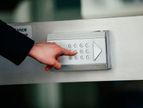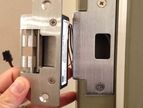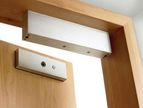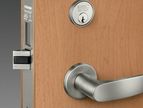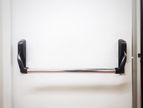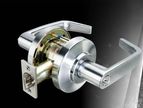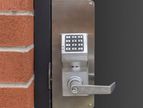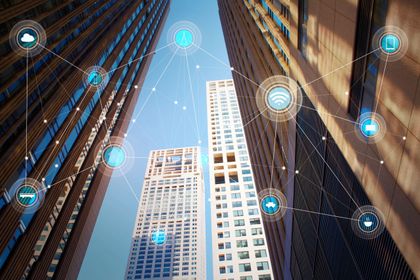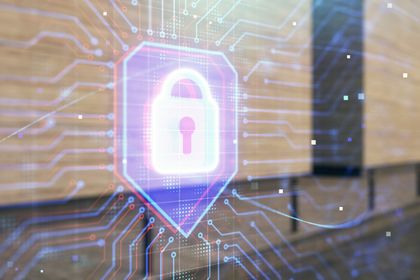When it comes to securing your business premises, choosing the right commercial door lock is essential. In this comprehensive guide, we will discuss the most common types of commercial door locks, how they differ from standard locks and the benefits of smart door locks for commercial real estate buildings.

Table of contents
- Most Common Types of Commercial Door Locks
- Benefits of Smart Door Lock Systems: The Future of Business Security
- Prioritizing Benefits for Business Owners
- Consumer Preferences for Controlling Smart Locks
Related Posts
How Commercial Locks Differ from Standard Locks
Commercial locks are designed to meet the specific needs of businesses and commercial spaces. They differ from standard locks in the following ways:
- Enhanced durability and resilience for high foot traffic
- Higher security features to protect valuable assets and information
- Compliance with commercial building codes and regulations
- Options for remote and keyless entry systems
Most Common Types of Commercial Door Locks
When selecting a commercial door lock, it’s essential to consider the pros and cons of each type to make the best decision for your business. Here are the most common types of commercial door locks, along with their advantages and disadvantages:
Keyless Entry Commercial Locks
Pros: Increased security by eliminating duplicate keys, easy-to-revoke access, improved convenience for employees, and lower costs associated with key management.
Cons: Vulnerable to electronic hacking, can be expensive to install and maintain, reliance on power source or batteries.
Electric Strike Locks
Pros: Automatic locking when the door is closed, ideal for one-sided security, cost-effective for most commercial buildings.
Cons: Requires a lockset or panic bar for a manual opening during power outages, may not offer the same level of security as other lock types.
Image source
Restricted Key Systems
Pros: High-security option with no unauthorized key duplication, difficult to pick, provides access control with unique keys for each holder.
Cons: Can be expensive to install and maintain, and requires specialized locksmiths for key cutting and servicing.
Magnetic Locks
Pros: Secure electromagnet technology, often integrated with access control systems, easy to revoke access when needed, offers remote lockdown options and activity monitoring.
Cons: Dependent on a constant power source, can be more expensive than other lock types, may not be suitable for all door types.
Image source
Mortise Locks
Pros: Durable and suitable for high-traffic areas, the deadbolt is located inside the body, making it more resistant to forced entry.
Cons: Requires a pocket to be drilled and chiseled into the door, can be more complex and time-consuming to install, usually more expensive than cylindrical lever locks.
Panic Bars or Crash Bars
Pros: Allows for quick and easy exit during emergencies, often required for fire safety compliance, long-lasting.
Cons: Requires regular maintenance to ensure proper functionality, may not offer the highest level of security.
Cylindrical Lever Locks
Pros: Easy and quick to install, aesthetically pleasing with a variety of design options, versatile with key-only or key-and-push-button options.
Cons: Limited advanced security features, may not be suitable for high-security areas.
Keypad Door Locks
Pros: Allows multiple users to access secure areas without physical keys, can provide automatic locking after incorrect attempts, can be installed on most doors.
Cons: Often more expensive than standard locks, may be vulnerable to hacking or unauthorized access.
Smart Door Lock Systems
Pros: Enhanced security features, convenient remote access and control, integration with other smart devices, touchless access control, video surveillance, intrusion detection, cloud-based admin dashboard, visitor management solutions, compatibility with turnstiles, elevators, parking gates, and garages, future-proof investment, reduced operating costs.
Cons: Can be expensive to install and maintain depending on the brand, and potential compatibility issues with certain doors or hardware.
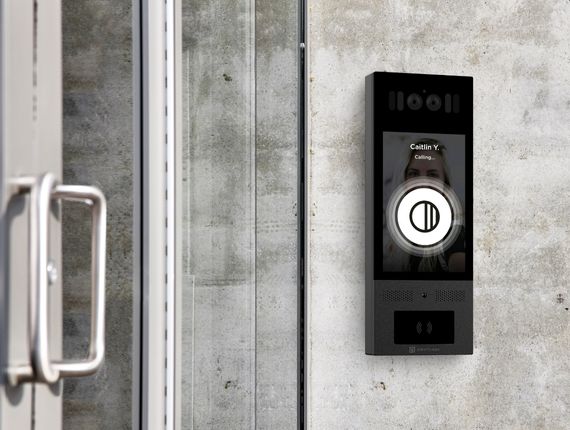
Benefits of Smart Door Lock Systems: The Future of Business Security
Smart door locks offer an innovative and highly secure way to protect your business while enhancing overall security. These advanced locking systems come with a host of technology-enabled amenities, such as:
- Touchless Access Control: Enables hands-free entry and reduces the spread of germs
- Video Surveillance: Provides real-time monitoring and recording of activities in and around the premises
- Intrusion Detection: Alerts security personnel or business owners in case of unauthorized entry
- Cloud-based Admin Dashboard: Offers a centralized platform for managing and monitoring access control across the entire facility
- Visitor Management Solutions: Streamlines the process of tracking and managing guests and temporary visitors
- Integration with Turnstiles, Elevators, Parking Gates, and Garages: Ensures comprehensive access control throughout the property
These features not only contribute to higher security within the commercial building but also elevate the user experience, making it more convenient and efficient. By investing in smart door locks, businesses can future-proof their security infrastructure and reduce operating costs associated with traditional lock systems and manual security procedures.
Prioritizing Benefits for Business Owners
When considering commercial door locks for your business, it’s essential to prioritize the benefits that matter most to your specific needs and circumstances. The following list highlights some key factors to consider, ensuring that you choose a lock entry systems that provide optimal security and convenience for your business:
- Security Level: Assess the level of security your business requires and choose a lock system that meets or exceeds that threshold. Consider the location of your business, the assets stored within, and the risk of unauthorized access.
- Ease of Use: Opt for a lock system that is user-friendly for both employees and authorized visitors. Complex or cumbersome locks may cause frustration and impede daily operations.
- Access Control: Evaluate the need for varying levels of access for different individuals or areas within your business. Some lock systems allow for customizable access permissions, making it easier to manage who can access specific spaces.
- Remote Management: Depending on the size and nature of your business, remote management capabilities may be essential. Lock systems with cloud-based admin dashboards allow for real-time monitoring and control from anywhere with an internet connection.
- Integration with Existing Systems: Consider how well a lock system integrates with other security measures in place, such as video surveillance, intrusion detection, or access control for turnstiles, elevators, and parking facilities.
- Future-Proofing: Invest in a lock system that is adaptable to technological advancements and can accommodate future security needs. This will help to protect your investment and reduce the need for costly upgrades or replacements.
- Operating Costs: Factor in the initial installation costs, as well as ongoing maintenance and potential upgrades, when choosing a lock system. Balancing upfront expenses with long-term savings will help you make a wise investment decision.
- Budget Constraints: Keep your budget in mind when selecting a lock system. Consider both the upfront costs and long-term expenses, such as key replacements or system upgrades, to ensure the choice is financially viable for your business.
- Compliance: Make sure your chosen lock system adheres to local building codes and regulations. Non-compliance may result in fines or other penalties, making it crucial to verify that your lock system meets the necessary requirements.
- Aesthetic Preferences: Choose a lock system that complements your building’s design and aesthetic preferences. A visually appealing lock system can contribute to a professional appearance and create a positive impression on visitors and employees alike.
Consumer Preferences for Controlling Smart Locks
When choosing a smart lock for your commercial space, consider the various control methods available and their popularity among consumers:
- Smartphone app control: 60%
- Allows users to lock and unlock doors using a dedicated app on their smartphone
- Can offer remote access and monitoring capabilities
- Keypad or touchpad entry: 25%
- Requires users to enter a PIN code on a keypad or touchpad to gain access
- Can be programmed with multiple user codes for different individuals
- Key fob or access card control: 10%
- Users carry a small device (key fob) or card that communicates with the lock when in close proximity
- Allows for quick and easy access without the need for a physical key or code
- Biometric control: 5%
- Uses unique personal identifiers, such as fingerprints or facial recognition, to grant access
- Offers a high level of security and convenience
Conclusion
Securing your commercial property is of utmost importance to protect your business, employees, and customers. With various commercial door lock options available, understanding their features and benefits is crucial in making an informed decision. Smart door lock systems, in particular, offer increased security and convenience that can prove invaluable for businesses.
If you’re interested in learning more, we invite you to reach out to Swiftlane to get a demo or a quote. With Swiftlane, you can be sure that you’re getting a reliable, secure, and convenient intercom access control system that meets the unique needs of your building.
Contact Us
Get in touch with our team to learn more about what Swiftlane can do for you.

